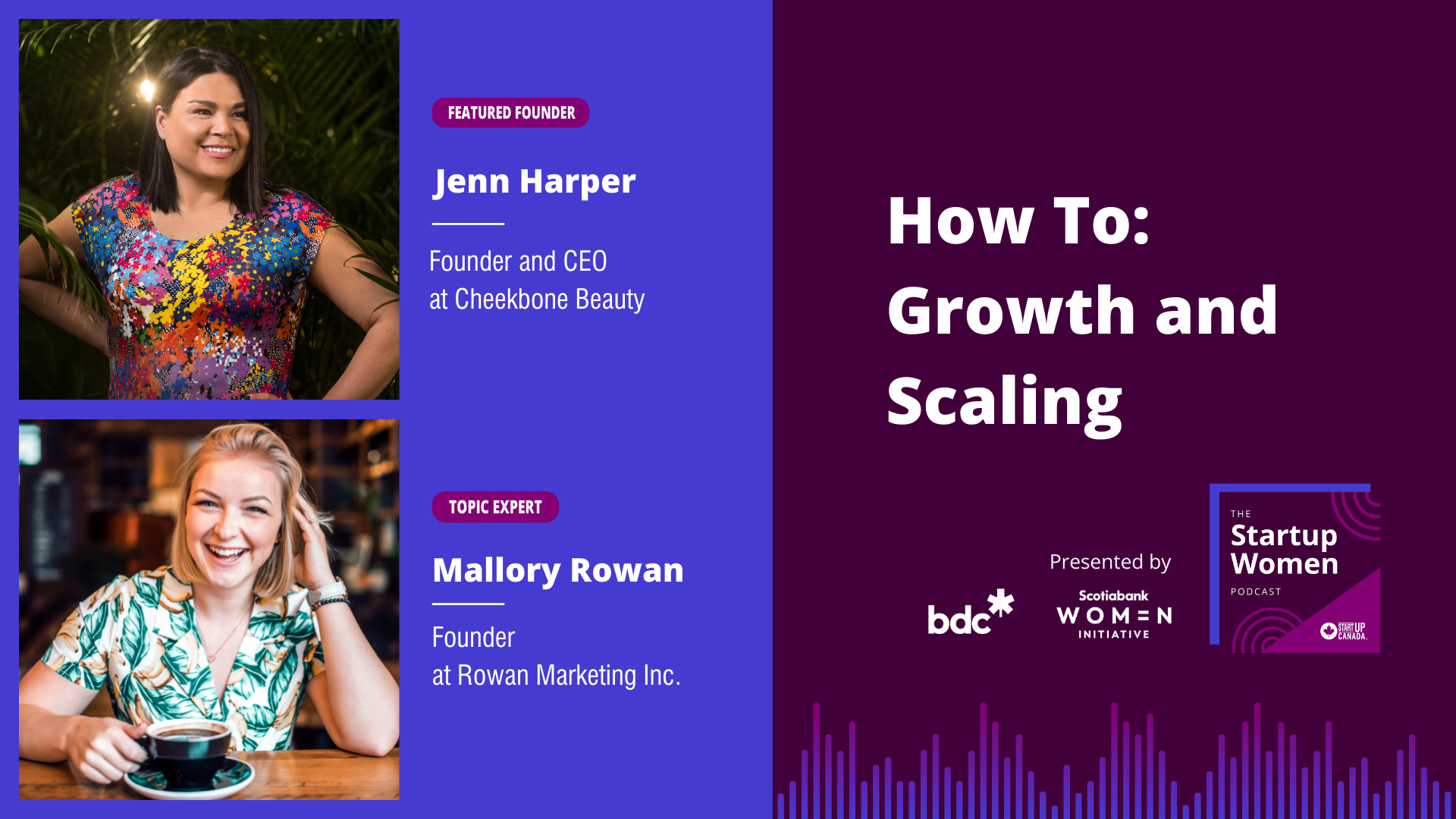“I failed grade nine science. Today, I own and operate a lab and employ chemists and other scientists. That’s the beauty I have learned about being an entrepreneur. You are the one with this big vision. I don’t know how to do all the things that I need to get done and want to be done. But there are incredible people that will want to come and join you on the journey when they believe in the vision and the why of your business as much as you do.”
It is through growth and scaling that founders continue to give their businesses life and it is how they reach the milestones they have always dreamed of. But these things can’t happen without asking yourself what you truly want and finding a sustainable pace to get there.
In August, our Startup Women Podcast host Kayla Isabelle sat down with Mallory Rowan, Marketing Educator and Jenn Harper, Founder of Cheekbone Beauty.
Cheekbone Beauty has grown so much since it started. But the early days are an important part of your story – what did they look like?
Jenn Harper: Back in 2015, I had an incredible dream, all of these native little girls were covered in lip gloss, they had the rosiest little cheeks. I woke up that night, grabbed my laptop and started writing what is the foundation of our brand to this day. I was newly sober and I was learning as much as I could at that time about my grandparent’s experience at Residential School, I had just started reading the final reports of the Truth and Reconciliation Commission, and discovered that my family’s history was so relatable to so many First Nations people across North America. I had the idea to create a brand (Cheekbone Beauty) and create representation in the beauty space. The beauty industry is also notorious for waste and we want to do something as a brand to help remove what we can from the landfill. So our mission and vision has always been to help every Indigenous person on the planet see and feel their value in the world and create sustainable colour cosmetics.
What are the biggest challenges founders face as they approach growth and scaling?
Mallory Rowan: When it comes to early stage businesses, I think there are 3 main things. The first is knowing what is next, and I think that truly is a big challenge for founders. Because what got you to the point you are at now, isn’t going to get you to the next point. As soon as you feel like you have figured it out, you are lost again because you are moving into that next phase. So for that, I think finding resources that you can depend on helps and looking for people that are three steps ahead. I think we like to look at people who are doing the thing we aspire to do, but that can be really hard to connect the dots. I also think turning what feels like negatives into positives matters. A lot of people want to fake being a big company, but it is okay that you are a small business, there are a lot of pros to being a small business. And lastly, learn to delegate and let go early on, even though you are often a one person show in the beginning. If you can learn to let people in and set up processes and systems so that when someone does come in, they can use them.
In the early days, what should be the biggest priority when it comes to growth? How can founders choose a focal point?
Mallory Rowan: I think at the beginning, not being afraid to try things, but not tracking everything, which is a really hard balance. You want to keep going through this system of like, try it, see what works about it, see what didn’t and take the good and get rid of the bad, adapt and keep going – that was big for us, like our early day trajectory, you can literally look at a chart and just see each launch getting better and better.
And then also, when you are in the infancy of your business, listen to your audience – you have an intimate connection. Don’t be afraid to try new things, trust your gut and you will learn to filter some of it our because you can’t do everything.
Want to continue learning from Mallory and Jenn? Listen to the full episode to learn about strategies for growth, leveraging digital tools and spaces and to hear both guest’s experiences with burn out.
